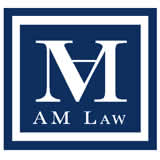So you’ve decided to buy your first home. As a first-time home-buyer, you’ve done everything by the books, and all that’s left to do is close on your new house. Congratulations! Nothing can go wrong at this point, right? Well, not exactly. Things can change quickly if you don’t know what you’re doing.
What Does It Mean to Close on a Home?
Closing on a home or other real estate is the final step of the buying process. Essentially, the closing is the point when a buyer gives the seller the money. It is also when much of the remaining paperwork is signed and completed. Once the closing is complete, ownership of the property is transferred from the seller to the buyer.
What You Should Do Before Closing
Many of the steps you need to take before closing on your home are intuitive, but some might come as a surprise to a first-time home-buyer. Here are a few important things to consider:
- Stay qualified – Just because you’ve been pre-approved for a home loan doesn’t mean you will get the money when the time comes. That’s because a pre-approval is not binding or a legal commitment on the part of the lender. Your approval is inherently conditional. What this means for your finances is that you need to keep circumstances from changing as much as possible once you’ve been approved.
- HUD-1 Settlement Statement – Before your closing date, you should receive a HUD-1 settlement statement. On this document, you’ll find a complete list of fees and costs that you are responsible for paying. It’s an important document because your finalized closing costs will most likely be different from the initial estimate you got when you applied for your loan.
- Cashier’s Check – On the day of the closing, you need to have a cashier’s check made out to the title or escrow company handling the sale. Make the check out for the exact amount of the HUD-1 settlement statement.
- Homeowner’s Insurance – Your lender will require you to have a homeowner’s insurance policy in place starting the day of closing. Some lenders require a full year’s coverage to be paid up front. Don’t think that you can get away with not having insurance, because your lender will check with your insurance company to verify that your policy is adequate.
What You Should Avoid Before Closing
When you’re scheduled to close on a house as a first-time home-buyer, there are some things that you should avoid, as well. Most of these things concern keeping your finances stable. A few examples include:
- Spending money – You, of course, need to live, so buying groceries and other essentials is fine, but try to avoid making any major purchases during the period between loan approval and closing. Once you’ve closed on your new home, feel free to buy whatever you want.
- New credit lines – Don’t open new lines of credit or new credit cards. Doing so will affect your debt ratio, which can cause your lender to hesitate
- Changing jobs – Starting a new career is usually a good thing, but if you can, try to avoid beginning a new job before closing on your home. Changes in income will affect your debt ratio just like when you open a new line of credit. If the new job pays less than your old job, your lender might reconsider your loan.
First-Time Home-Buyer: Get in Touch
Now that you know what to do before closing on your home, take the next step. Call us today for a consultation at 305-441-9530.
